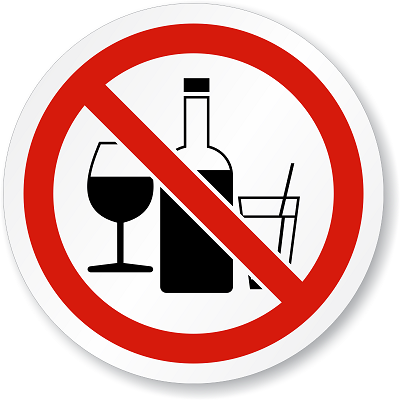Quitting alcohol can be a challenging process, but it is possible with determination, support, and the right strategies. Here are 10 steps to help you quit alcohol:
- Set a quit date: Choose a specific date to quit drinking. This will give you a clear starting point and allow you to mentally prepare for the change.
- Create a support system: Reach out to supportive friends, family members, or support groups who can provide encouragement and understanding during your journey to quit alcohol. Consider joining Alcoholics Anonymous (AA) or seeking professional help from counselors or therapists specializing in addiction.
- Identify triggers: Identify the situations, emotions, or people that often lead to drinking. Common triggers include stress, certain social events, or specific places. Once you know your triggers, you can develop strategies to avoid or cope with them in healthier ways.
- Remove alcohol from your environment: Get rid of any alcohol in your home or other environments where you typically drink. This will help reduce temptation and make it easier to stay committed to quitting.
- Find healthy alternatives: Discover alternative activities or hobbies that you enjoy and that can replace the time you used to spend drinking. Engage in physical exercise, pursue creative outlets, try new hobbies, or spend time with supportive friends who do not drink excessively.
- Develop coping strategies: Find healthy ways to cope with stress, boredom, or negative emotions that used to trigger drinking. Practice relaxation techniques such as deep breathing, meditation, or yoga. Explore therapy or counseling to address underlying emotional issues that may have contributed to your alcohol use.
- Take care of yourself: Focus on self-care to improve your overall well-being. Get regular exercise, eat a balanced diet, get enough sleep, and engage in activities that bring you joy. Taking care of your physical and mental health can make the process of quitting alcohol easier.
- Celebrate milestones: Acknowledge and celebrate your achievements along the way. Set small goals and reward yourself when you reach them. This can help boost your motivation and provide positive reinforcement.
- Seek professional help if needed: If you find it challenging to quit alcohol on your own or if you experience severe withdrawal symptoms, consider seeking professional help. A healthcare provider or addiction specialist can guide you through the process, provide medical support, and recommend appropriate treatment options.
- Stay committed and stay positive: Quitting alcohol is a journey that requires commitment and perseverance. Stay positive, remind yourself of the reasons why you want to quit, and focus on the positive changes you experience as you become alcohol-free.
Remember, quitting alcohol is a personal journey, and everyone's path may be different. If you experience setbacks or relapses, don't be too hard on yourself. Learn from those experiences, seek support, and continue to strive for a healthy, alcohol-free life.


